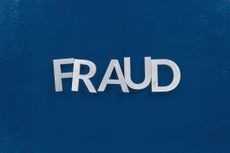Connecticut State Tax Guide
Connecticut state tax rates and rules for income, sales, property, fuel, cigarette, and other taxes that impact Connecticut residents.


Connecticut State Tax: Overview
Property taxes in Connecticut are relatively high. However, Connecticut's income tax rates don't reach 7% — regardless of how much you earn. Additionally, some taxpayers will see lower income tax rates next year.
Connecticut also has a gift tax and an estate tax, but most residents won't need to worry about paying those taxes since they only apply to gifts and estates worth more than $12.92 million.
[Data for this state tax guide was gathered from several sources including the U.S. Census Bureau, the state’s government website, the Sales Tax Handbook, and the Tax Foundation. Property taxes are cited as a rate percentage rather than the assessed value.]

Sign up for Kiplinger’s Free E-Newsletters
Profit and prosper with the best of expert advice on investing, taxes, retirement, personal finance and more - straight to your e-mail.
Profit and prosper with the best of expert advice - straight to your e-mail.
Connecticut State Tax: Income Taxes
Connecticut tax on retirement benefits: Social Security benefits are tax-exempt for single and married filing separately filers with an AGI (adjusted gross income) below $75,000. Joint and head of household filers won't have their Social Security benefits taxed as long as their AGI falls below $100,000.
Income from an annuity or pension is tax-exempt for joint filers with less than $100,000 of federal adjusted gross income and other taxpayers (including head of household) with less than $75,000 of federal AGI.
For 2023, 25% of income from IRA distributions is tax-exempt for filers who meet the same income guidelines set for pension and annuity income (less than $100,000 for joint filers and less than $75,000 for all other filers). Taxpayers who meet these guidelines can exempt a larger percentage of IRA distributions in the next few years.
- Eligible taxpayers can exempt 50% of IRA distribution income in 2024.
- Eligible taxpayers can exempt 75% of IRA distribution income in 2025.
- Income from IRA distributions will become completely tax-exempt for eligible taxpayers in 2026.
Note: Taxpayers can deduct 50% of teacher's retirement system (TRS) pension income. However, eligible taxpayers are only eligible to deduct the general pension or annuity income or the TRS income, not both.
The tables below reflect tax rates for the 2023 tax year. The 5% tax rate will be lowered to 4.5%, and the 3% tax rate will be lowered to 2% starting in the 2024 tax year.
Connecticut Income Tax Range: Single and married filing separately
| Up to $10,000 | 4% |
| $10,001 to $50,000 | 5% |
| $50,001 to $100,000 | 5.5% |
| $100,001 to $200,000 | 6% |
| $200,001 to $250,000 | 6.5% |
| $250,001 to $500,000 | 6.9% |
| More than $500,000 | 6.99% |
Connecticut Income Tax Range: Head of household
| Up tp $16,000 | 3% |
| $16,001 to $80,000 | 5% |
| $80,001 to $160,000 | 5.5% |
| $160,001 to $320,000 | 6% |
| $320,001 to $400,000 | 6.5% |
| $400,001 to $800,000 | 6.9% |
| More than $800,000 | 6.99% |
Connecticut Income Tax Range: Married filing jointly
| Up to $20,000 | 3% |
| $20,001 to $100,000 | 5% |
| $100,001 to $200,000 | 5.5% |
| $200,001 to $400,000 | 6% |
| $400,001 to $500,000 | 6.5% |
| $500,001 to $1,000,000 | 6.9% |
| More than $1,000,000 | 6.99% |
Connecticut Sales Tax
Connecticut's statewide sales tax is 6.35%, and localities don't charge any additional sales tax, according to data from the Tax Foundation.
- Groceries are tax-exempt.
- Clothing under $50 is tax-exempt.
- Prescription drugs are tax-exempt.
- Connecticut does not tax some feminine products.
- Diapers are not taxable.
How Much Are Property Taxes in Connecticut?
In Connecticut, the average effective property tax rate is 2.15%, which is higher than the national average.
Connecticut Property Tax Breaks for Retirees
Property Tax Credit Program: Connecticut offers property tax credits of up to $1,250 to eligible homeowners. Married homeowners can receive a credit of up to $1,250. Other homeowners can receive a credit of up to $1,000. Connecticut residents must apply for the program and meet eligibility criteria to qualify.
- Homeowners must be 65 or older.
- For married couples, income for the 2022 tax year must not exceed $49,100.
- For single homeowners, income for the 2022 tax year must not exceed $40,300.
(Note: Homeowners with disabilities may qualify for the property tax credit if under age 65.)
Connecticut Motor Vehicle Taxes
Connecticut taxes gasoline at $0.25 per gallon.
Motor vehicle purchases are taxed at 6.35%. Vehicles over $50,000 are taxed at 7.75%.
Connecticut imposes a personal property tax on vehicles.
Connecticut Alcohol and Tobacco Taxes
| Cigarettes | $4.35 per pack |
| Snuff | $3 per ounce |
| Cigars | 50% of wholesale price ($0.50 maximum) |
| Other tobacco products | 50% of wholesale price |
| Vapor products (liquid) | $0.40 per ml |
| Vapor products (other) | 10% of wholesale price |
| Beer | $0.24 per gallon (reduced to $0.20 on July 1) |
| Wine | $0.72 per gallon |
| Wine (sparkling) | $1.80 per gallon |
| Liquor | $5.40 per gallon |
Connecticut Estate, Gift and Inheritance Taxes
Connecticut has an estate tax with a $12.92 million exemption (the same amount as the federal estate tax exemption). Connecticut also imposes a gift tax with a $12.92 million exemption. Gifts or estates worth more than $12.92 million are taxed at 12%.

Katelyn has more than 6 years’ experience working in tax and finance. While she specializes in tax content, Katelyn has also written for digital publications on topics including insurance, retirement and financial planning and has had financial advice commissioned by national print publications. She believes that knowledge is the key to success and enjoys helping others reach their goals by providing content that educates and informs.
-
 Charitable Remainder Trust: The Stretch IRA Alternative
Charitable Remainder Trust: The Stretch IRA AlternativeThe SECURE Act killed the stretch IRA, but a properly constructed charitable remainder trust can deliver similar benefits, with some caveats.
By Brandon Mather, CFP®, CEPA, ChFEBC® Published
-
 Three Ways to Take Control of Your Money During Financial Literacy Month
Three Ways to Take Control of Your Money During Financial Literacy MonthBudgeting, building an emergency fund and taking advantage of a multitude of workplace benefits can get you on track and keep you there.
By Craig Rubino Published
-
 Retirees Face Significant Tax Bills Due to Fraud
Retirees Face Significant Tax Bills Due to FraudFraud A new report sheds light on how older adult scam victims end up with big tax bills and lost retirement savings.
By Kelley R. Taylor Last updated
-
 Tax Day: Is the Post Office Open Late?
Tax Day: Is the Post Office Open Late?Tax Filing Tax Day means some people need to mail their federal income tax returns.
By Kelley R. Taylor Published
-
 High Earners: Beware of These Illegal Schemes to Lower Taxes
High Earners: Beware of These Illegal Schemes to Lower TaxesTax Schemes The IRS says high-income filers are targets for several illegal tax schemes.
By Katelyn Washington Last updated
-
 Mailing Your Tax Return This Year? What to Know Before You Do
Mailing Your Tax Return This Year? What to Know Before You DoTax Filing There are plenty of reasons not to mail your tax return this year, but here’s what you should know if you are.
By Katelyn Washington Last updated
-
 IRS Warning: Beware of Smishing and 'Helper' Tax Scams
IRS Warning: Beware of Smishing and 'Helper' Tax ScamsScams Tax season is a time to look out for email and text message scams.
By Kelley R. Taylor Last updated
-
 Most Expensive States to Live in for Homeowners
Most Expensive States to Live in for HomeownersProperty Taxes High property tax bills make the places on this list the most expensive states for homeowners to live in.
By Katelyn Washington Last updated
-
 Don’t Miss This $2,500 Tax Break for Paying Your Student Loan
Don’t Miss This $2,500 Tax Break for Paying Your Student LoanTax Deductions Do you qualify for the student loan interest deduction this year?
By Katelyn Washington Last updated
-
 How Much Richer Could You Be Without a Big Tax Refund?
How Much Richer Could You Be Without a Big Tax Refund?Tax Refunds A big tax refund isn’t a reason to celebrate if you overpaid throughout the year. Here’s how much money your interest-free loan to the government could have cost you.
By Katelyn Washington Last updated